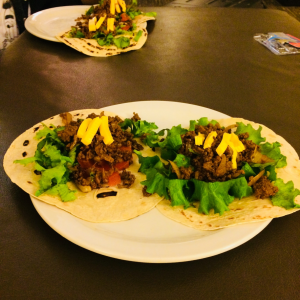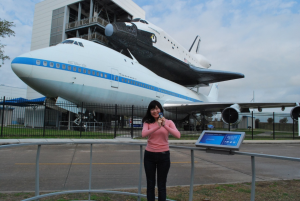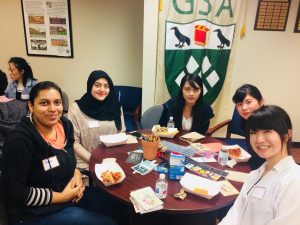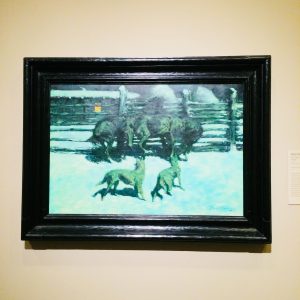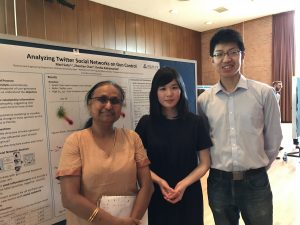[:en]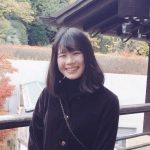 Mari Sato
Mari Sato
Hometown in Japan: Kyoto
University in Japan: Doshisha University
Major & School Year: Computer Science, B4
Host Advisor: Prof. Devika Subramanian, Dept. of Computer Science
Host Lab: Subramanian Lab
Research Project (PDF): “Analyzing Twitter Social Networks on Gun Control”
Why TOMODACHI STEM @ Rice University?
Throughout my undergraduate days, I strongly hoped to study in the U.S. for two
reasons. Firstly, I want to join in with cutting-edge research and gain knowledge and
new skills from it. Secondly, I want to work with people from all over the world and
learn how people from different background work together.
These two points are very important for my future career. After graduating with a
masters degree, I plan to get a job at an international IT company and work as a member of a multinational developer team. After gaining valuable industry experience, my goal is to return to university in the U.S. to achieve a PhD. I believe that participation in this internship will surely help me gain a better understanding of doing research in the US and thus broaden my future career.
Goals
- Experience cutting-edge research and gain knowledge and new skills
- Communicate with people from different cultural background
- Brush up my English skills even more, especially in technical presentations
My favorite experience in the US was… meeting new people and expanding my human network. I especially enjoyed joining the lunch meeting of CSters: Rice Women in Computing, which is a group of female undergraduate students at Rice University, as I found the community of my peers in computer science so helpful.
Before I left for the US, I wish I had… spent more time on doing programming tutorials. It was frustrating that I needed to spend hours and days for them in the first and second week at Rice.
While I was in the US, I wish I had… visited more professors at Rice. I thought I was not prepared to visit and talk with them, which did not really matter. It is always helpful to summarize what your experience and your works (your favorite school assignments, your senior thesis, etc.).
Excerpts from Mari’s Weekly Reports
- Week 01: Arrival in the U.S.
- Week 02: First Week at Research Host Lab
- Week 03: Interview With a Female Researcher
- Week 04: Research in the U.S. vs. Research in Japan
- Final Research Poster Presentation
- Week 05: Science & Technology Policy Study Tour
- Final Report & Tips for Future Participants
Week 01: Arrival in the U.S.
Before I came to the US, I expected that people who meet for the first time would figure out I am a foreigner and would ask “Where are you from?” in the first place, just like I do in Japan. After I arrived in the US, I found that I was wrong. In the US, there are so many people from other countries, or who have roots in foreign countries. People seem to never even try to guess which country I am from as long as I speak English because you cannot tell that from my appearance or my English. So far, I feel comfortable with it.
Since I arrived in Houston, my roommates and I enjoy watching TV every night. I was impressed that American children grow up in an environment with a lot of competition and compliments. I was surprised that there are so many audition shows on TV, like almost every day. In these TV shows, people, including children, have opportunities to express themselves and celebrity judges give very encouraging words; telling them that they can do anything. These words can surely inspire the audience, as well as the children competing. Here, I understand why US people can believe in themselves and are willing to try bold things.
In the first week at Rice University, we had some orientations and seminars. I was surprised that there are many comfortable cafes inside the campus. I also enjoyed walking around the beautiful campus, which reminds me of the red brick buildings of Doshisha University. I also enjoyed shopping at Sephora in the Rice Village. It was one of the things I was looking forward to because I am very impressed with the values for beauty standards. Cosmetic products in the US are much richer in variety compared to Japan. It was exciting to see foundations for dark tones and colorful sparkling products even though I don’t need them.
On Sunday, we visited NASA Space Center! It was more interesting with the commentary of the TOMODACHI fellows whose major is related to space.
Initial Reflections on U.S. vs. Japanese Culture
On my first day in the U.S., I was surprised that people were talking to me all the time and saying “Hello” in the elevator, in the supermarket, on the street – anywhere! On the other hand, my mentor always responds to everything with “Cool,” which made me feel a little awkward but I gradually have gotten used to it. So, I sometimes will ask him “What is cool?”. Overall, I have found that people are different and you need to be flexible.
One other thing I was impressed by is that that American children grow up in an environment with a lot of competition and compliments. I was surprised that there are so many audition shows on TV, like almost every day. In these TV shows, people, including children, have opportunities to express themselves and celebrity judges give very encouraging words; telling them that they can do anything. These words can surely empower the audience, as well as the children competing. Here, I understand why US people can believe in themselves and are willing to try bold things.
On the other hand, in my opinion, Japanese people pay a lot of attention to making people feel comfortable. I found the Japanese core values especially in product design. Taking the example of packages, US plastic clamshells are impossible to open with hands — when I googled how to open them safely, the top page suggested to use can opener! — while Japanese plastic clamshells always have a small to trigger to open them easily.
Research Internship Update
Before I arrived in Houston, I exchanged a few e-mails with Prof. Subramanian to prepare for my research internship. Research projects in the Subramanian lab focuses on data analysis in political and social sciences, including social network analysis on Twitter, hurricane flood prediction, and other natural language processing (NLP) tasks. I did not have enough time to decide which project to join and read related papers due to my graduation thesis, so I decided to spend pre-departure time on reviewing machine learning techniques on Cousera. This helped me understand the contents of research projects in Subramanian’s lab.
My initial meeting with my advisor, Prof. Subramanian, and my mentors, Isaac and Joe, started with the topic of my graduation thesis. It was very difficult to explain what I did in Japan even though we all have some knowledge about it. I found that I should explain the goal of my project first, rather than detailed methods. It was a good experience to learn how to explain my research project in the poster presentation, which will be held in our the last week at Rice.
I was surprised that students in Computer Science Department work in separate rooms (usually 2-3 students use one room) unlike in Japan. Prof. Subramanian prepared me a room but, unfortunately, I found it too cold to work due to air conditioning (I also found it very “American”), so I usually work at the library.
During the first week, I read related papers and composed my case study structure. I sometimes talked with my mentor Joe about how they set their questions and analyze social networks on Twitter. He showed me how network visualization software works. Overall, my research project will be social network analysis on Twitter and I will conduct case study on gun control.
Question of the Week
I was surprised that many sidewalks are unpaved and big pools appear in rainy days. Is it not unusual in big cities like Houston in the US?
- Keep in mind that more people drive than walk or bike in Houston and, therefore, the streets may be better maintained than the roads. Also, if there are large trees planted nearby to shade the sidewalks (common in Houston) their roots can start to come up and disrupt the paved paths as the trees grow larger. Americans like the look of tree lined streets and sidewalks but the downside is that, eventually, the roots can cause problems with the paving.
Return to Top
Week 02: First Week at Research Host Lab
I was surprised that people in Computer Science faculty study and conduct research in more of a free atmosphere than I expected. The only routine is attending a group meeting once a week. I don’t even have to work in my assigned own office. I usually work at the library because the air conditioning is very intense in my building. While I found the atmosphere free, I also found that I have more responsibility in making progress with my tasks; working with programming, finding problems, consulting with my mentor, and finding a solution.
This week I joined three lunch meetings. On Monday, I joined the OISS International Ladies Network Lunch with the other TOMODACHI fellows. My table had five students from different STEM fields and from different countries; so it was very exciting to talk about our backgrounds. It was surprising that some students are already married. We also enjoyed making cards during the meeting. On Tuesday, I joined the Japanese Language Table with Rice University students who are studying Japanese. It was interesting to know how non-native Japanese people study Japanese. For example, I found that the students learn Japanese with very polite expressions (like adding “desu,” “masu” at the end of the sentence).
On Wednesday, I joined the CSters weekly luncheon. CSters is a community that supports women in computing. The luncheon was held by female undergraduate students in the computer science department. We enjoyed chatting and eating regardless of our year in school. Since Rice students were about to have their mid-term examinations, they were all talking about their lecturers, examinations, and assignments. Some were talking about their applications for summer internships. I think it would be nice to have an opportunity to talk with people other than friends in such a community in Japan because there are few female students in the same year at my university.
One other thing, I had difficulty catching up with the conversation during the luncheon. To be honest, it was the fastest conversation I have ever experienced. I managed to understand what people were saying but I found it almost impossible to make quick responses in the same speed. After the luncheon, I talked with a student from Hong Kong, who was at the language table and we got know each other. When I told her my difficulty in speaking English, she encouraged me saying that she also had the same difficulty at first. I believe I will get better as I stay in the US.
Research Project Update
My research project is to analyze Twitter social network. I set “gun control” as the target topic and try to visualize how mass opinions have changed by looking at past gun attacks. This is my first time to work on a topic related to political science and my advisor Prof. Subramanian and my mentor Joe helped me design the project structure. The methodology consists of four steps; collecting Twitter data, sentiment analysis for tweets, Twitter user social network analysis, and discussion. First, we collect Twitter data with certain keywords and detect influential users. Next, we analyze tweets from influential users and provide sentiment label (positive, negative, and neutral) to some of them to analyze the whole tweets using machine learning. Then we construct graph of Twitter users and analyze how many communities exist and how they have changed over time. Lastly, we discuss the results.
This week, I started collecting data using application programming interface (API). I used Twitter APIs for the first time. I found it even more important to read materials or tutorials written in English to learn programming. In Japan, we have IT posting site like Qiita but I found more helpful resources to learn new programming packages or solve errors. Joe helped me find these materials. I think I will try to find by myself next time. This week, I also tried data visualization using a data visualization application, Gephi. I had a difficulty in processing data because my laptop needed a long time to process the huge amount of Twitter data. My mentor suggested me to reduce the data amount to achieve influential user detection and better processing speed at the same time. I learned that bigger amount of data is not always the best way to reach to the right answer.
Week 03: Interview With a Female Researchers
I interviewed Haley, who is an undergraduate student majoring in computer science. She was born and raised in a town near Hong Kong and came to the US for her undergraduate studies. She came to the US because she was strongly inspired by her mentor when she was a high school student. Her mentor was a few years older than Haley and she was accepted to Harvard University. Haley was very impressed with the speech of her mentor and she decided to go to the US too. Coming to Rice University, she was surprised that there are so many female students in STEM fields, even in the PhD course. In fact, at Rice, half of the students majoring in computer science are female. We strongly agreed that we were both encouraged by this environment because it is uncommon for female students to aim for PhD degrees in Japan or China due to family worries or even concerns about career opportunities.
Haley is a sophomore (B2) now and after graduation she plans to get a job in industry. She told me that her preference is to get a job in the US, but she is also interested in working outside the US such as in Japan since she also studies Japanese. It was interesting to know how non-Japanese students think about Japanese companies. Haley told me that there are few job opportunities for non-Japanese students to experience what is it like to work in Japan or in a Japanese company. The only company she knew was Indeed (it is a subsidiary company of Recruit Inc). In my opinion, Japanese companies should open their occupations for non-Japanese people as well if they really pursue globalization.
She is not working in a laboratory at Rice but she is working as a member of the application developer team of Rice. Talking with her, I was quite surprised that almost all undergraduate students in the US are highly motivated and pursue either research experiences or industry experiences. On this point, I found a big difference between Japan and the US. In Japan, I see many students who do not pursue either research or industry experience and just play around. In my opinion, this difference comes from what is required for university admission and job-hunting. Talking about university admission, in the US, applicants have to write an essay about why they applied to the university and what their goals are for their undergraduate career while Japanese students just focus on preparing for an examination have fewer opportunities to think about why they want to go to college. As for job-hunting, US companies pay more attention to experience and capability, compared to Japanese companies. Because of these two differences, it makes sense why US students are basically highly motivated.
Overall, this interview was an eye-opener for me and it made me motivated to apply for internship programs at IT companies in the future since I am interested in working for an international company.
I also interviewed with Dr. Risa Myer, who is a lecturer in the Dept. of Computer Science. For this interview, I was more interested in how she has approached work-life balance.
She has had an interesting career path. She worked in industry after finishing her undergraduate degree but a few years later she applied and was accepted to a part-time master’s course while she kept working. After finishing the master’s course, she did not go on to PhD course because of several reasons. One was that she was not sure about what she would do during a PhD course. The other one was that she got married and moved to Houston. While her son is now growing up, she decided to go back to school for her PhD. She told me that being in the graduate school gave her more flexibility to be with him. Yet things have worked out very well for her so far, but there were compromises too. For example, her husband works in the space industry and she didn’t look for jobs outside Houston.
I was very impressed with her story and asked how she made all these opportunities for herself. She told me that she achieved them not only because she worked hard but also because she has a very supportive husband and other support systems. I strongly agreed with her since one of the reasons why I applied for graduate school in Kyoto University was to stay close with my best friends. Her strong message was that I should not let people discount my support systems and this encouraged me a lot. She continued that there are very good students in every school with good education, and I can be a good student wherever you are. Even though her career path is not common in the US, she always found a good support system like other mothers in her PhD courses which helped her get through when things were hard. She told me that I can find different support systems for my different aspects of life and I can find people who are in a similar place in their lives as I am in mine.
She confidently told me that she thinks she made right decisions and that what is right for somebody else is not necessarily right for her because it is her life. Even though she made some tradeoffs, they are okay as long as she can find something she is happy with. On the other hand, she told me that it’s still important to think why you are making your decisions because some of the decisions she made were out of fear these were the ones she regrets. She hopes to stay at Rice and eventually get a job as a lecturer and I believe she will definitely achieve her future goals.
It was an inspiring moment to meet a woman who takes balance between her personal life and her career and has a strong confidence in it. I personally believe that finding and keeping support systems is very important because we are humans with complicated souls and bodies. We cannot keep working just because we believe we have to do so. Her talk encouraged me to do what I believe is right no matter what people say.
This week, I also enjoyed visiting the Museum of Fine Arts, Houston. I like visiting museums and enjoy paintings, so it was a good relief moment from my research project. It was interesting to know about how fine arts got a position in the 19th century.
Research Project Update
This week, I worked on my project while making my poster for the final poster presentation.
Last week, I made a user graph from the Twitter data using visualization software Gephi. From the user graph, I picked influential users and provided a sentiment label from “positive”, “negative”, and “neutral” for the topic of gun control. I investigated tweets of those users and read related news articles to determine which label to provide. It was a good opportunity to learn what kind of people are supporting gun control and who are not. After labelling, I moved on to sentiment analysis for all users using machine learning.
I really enjoyed making my poster. I am thinking of using many examples so that the audience can easily imagine and understand my ideas.
Week 04: Research in the U.S. vs. Research in Japan
My final week at Rice was very busy. Since the spring break wsa over and Joe and Devika were back on campus, we talked about what should be the focus of my poster. Devika gave me some new directions to make it more convincing.
Outside of campus, the TOMODACHI STEM participants gathered in my room and practiced their poster presentations every night. Since we usually focus on the details of our projects, it was very difficult for us to prepare brief explanations for people who don’t know about the research topics. Some had to reduce technical explanations substantially and focused on delivering the objectives of their project. Yet we enjoyed it a lot.
I think my presentation went very well! Many people found my topic familiar and came to my poster. It was a good opportunity to have some comments from the audience, especially who were born and raised in the US since I found myself a little bit biased as a Japanese person who was born and raised up in the country with strict gun regulations. Some comments showed me new aspects to review about my projects. For example, a young guy from the US told me that young people in the rural areas still love guns and they show their opinions on their private accounts. With these comments, I believe that I can make my project even more convincing and contribute to society’s understanding of this topic. Last but not least, I am so happy that my host professor, Devika, and my mentor, Joe, agreed to continue this collaboration with me. In near future, I would like to publish a paper on it. I really appreciate the established working style in computer science. Yet I will miss Rice and its culture of supporting each other in communities.
Final Research Poster Presentation
Host Advisor: Prof. Devika Subramanian, Dept. of Computer Science
Host Lab: Subramanian Lab
Research Project (PDF): “Analyzing Twitter Social Networks on Gun Control”
My research project is analyzing social network on Twitter so that we can obtain an objective overview of people’s reaction. Some people show their opinion on Twitter by tweeting but we assumed that the larger number of people will show their opinion by retweeting, that is, sharing someone other’s tweet on their behalf. Following this assumption, we visualized the social network on the topic of gun control to analyze what is the structure of it and how it evolves over time.
Our methodology consists of four steps: first we collect Twitter data and pick influential users to label their opinion on gun control. Then we propagate these labels to all users to analyze the social network. As a result, we constructed graphs of Twitter users who talk about gun control in time series and found that the anti-gun group and the neutral group are densely connected while pro-gun group is separated. Moreover, we found that these two groups has kept big influential power. Overall, we concluded that more and more people are paying attention on the discussion of gun control. For our future work, we would like to keep collect data and analyze past data as well so that we can gain the whole sequence of the gun attack in Florida and even more we can compare it to past cases.
Week 05: Science & Technology Policy Study Tour
This week, I really enjoyed talking with new people and building expanding my network. My experiences at Lehigh University and Washington D.C. completely changed my attitude for human networking.
Before this program, I was too shy to ask someone to talk about his or her story or to ask to talk with someone I did not know about what I was interested in. This was because I was too shy or even afraid of telling why I ask him/her, which was deeply connected to my future goal. I would like to keep this in my mind until I think I can now make it almost possible.
Our Lehigh University visit started with practicing our own self-introduction — my affiliation, my interest, my achievements, and my goals. I had many things to present but I remembered the seminar about oral presentation (which was held by Kuriko-san) and found that I should set my goal as a key message to tell and other components (my interests and my achievements) should be the caterpillar that supports my goal. Now I learned how to make an effective self-introduction!
During our Lehigh visit, I met many impressive people but especially I would like to write about the informal discussions we had with women in STEM fields at Lehigh. We had two professors and two PhD students as our guests. They were successful and confident, but I found that they also shared with us the conflicts and challenges they have experienced too. One of the guests told us her experience of being strapped with imposter syndrome, which makes people feel they do not deserve to belong where they do, such as in a PhD program in STEM, even though they have objective evidence to prove they do belong. I strongly sympathized with her since I often felt hesitant to ask questions as I’m afraid that they may think what I am asking is stupid or something very easy or simple that I should already know. When I asked the panelists how I could encourage myself to ask more questions, each of the guests shared her experience overcoming imposter syndrome and feeling more confident asking questions themselves. They strongly encouraged me to believe in myself and that makes me move forward by keeping the famous saying “Fake it until you make it” in the back of my mind. That was an unforgettable moment for me and it completely changed my attitude about asking someone to share his/her story.
One other unforgettable experience was visiting Prof. Davison, who is an expert in data science. Actually, this visit was not scheduled as part of the program. It just started from the conversation at cafeteria. We talked about my project at Rice and Dr. Cheryl Matherly, who is the Vice President of International Affairs at Lehigh University, told me about the data science center at Lehigh and that they were working on projects related to journalism. I found the courage to ask her to introduce someone from the center and I was very lucky to meet Prof. Davison at the center. Before the visit, I was very nervous because I didn’t have much time to learn more about his research and I didn’t feel I was prepared enough, but once the meeting started I really enjoyed talking about his projects and career path in the IT industry. Even more, I was surprised to hear that he knows the associate professor who is supervising me at Kyoto University. This experience made me realize the importance and enjoyment of human networking. I am looking forward to seeing him in the near future, maybe at an international conference!
Right after I came back to Japan, I immediately started my masters course. I meet new people every day at a new school. I think I am doing well with self-introduction so far!
I also started to gather information about summer internships and ask other masters students to share about their internship experiences to learn more. I think I learned how to achieve my goal with the cycle of setting a goal, working hard, and asking people for advice or human networking through my experience at the TOMODACHI STEM Program. I am looking for what comes next this summer!
Final Report
As a female student in STEM field, the TOMODACHI STEM program showed me many options for my future career and convinced me that I can do anything as long as I have my support system. During the program, I met many women who are in the STEM field – university professors, university lecturers, PhD students, and technicians/researchers at Dow Chemical. All of them followed their own career path, and they looked very confident with it, which encouraged me a lot.
This program also gave me an opportunity to analyze how I think, feel, and act when I jump into a new environment. I found myself enjoying meeting new people, listening to their stories, sharing my story, and thus expanding my human network. The personality analysis also told me that I am good at delivering my ideas to people using scenarios and examples. Talking with people from Dow Chemical and Lehigh University, I found the potential of machine learning to collaborate with people from other fields. This experience motivated me to work in cross-cutting environment beyond the IT industry.
Talking about research experience, it was a great opportunity to be a part of the cutting-edge research projects in a US university. Moreover, there would be no other opportunity like this to know ten female undergraduate students from Japan who are highly motivated to pursue PhDs to be researchers in the future. We still keep in touch and they always motivate me even after the program has ended. Now I am very motivated to attend international conferences and meet new researchers and students from all over the world!
Return to Top
Tips for Future Participants
I have two tips for future participants: one is about research environment in US universities, and the other is about food.
At Rice University, I didn’t have an opportunity to work with laboratory members other than my mentor, Joe. In Computer Science Department, students work separately in small rooms and I didn’t share one with other students. If you ask your professor if you can also join the weekly meeting of the research group/lab, you may have opportunity to also meet other laboratory members!
My second tip is about finding suitable food for you. I found that I don’t have a taste for fat, and that it is better to avoid fatty foods like cheese or meat with a lot of fat. If you have a taste like me, I recommend you look for salads and vegetarian food. They are healthy and tasty, which I didn’t expect before going to the US.
Last but not least, I really enjoyed shopping cosmetic products at Sephora! I bought many mini-size lipsticks and perfumes, which were good omiyage for my friends!
[:]

